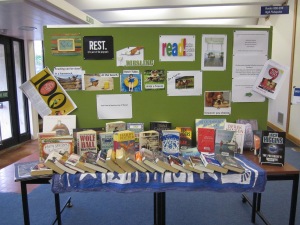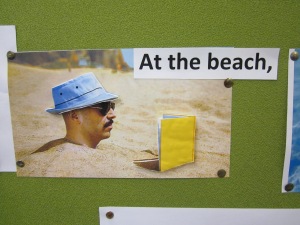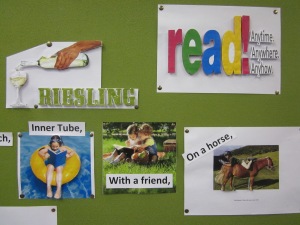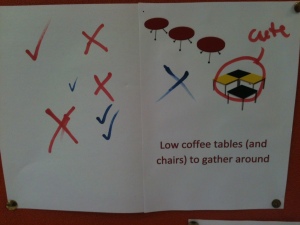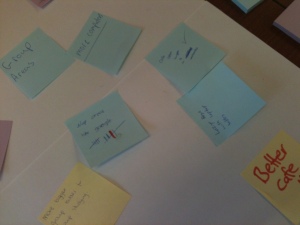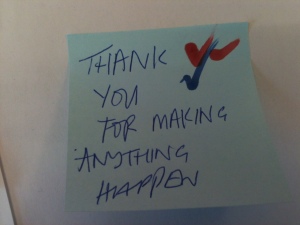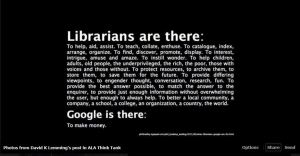Thomas Frey spoke at LIANZA14 recently, I didn’t attend but if the tweets were anything to go by, the audience was distinctly underwhelmed. As one of them said, yes in the future things will be different.
I’ve just revisited an article by Brian Mathews called The librarian as futurist: changing the way libraries think about the future. In it Brian doesn’t speculate on what is going to happen in the future but suggests that librarians should focus on how things could change by using scenario planning, being change literate and being comfortable with ambiguity.
Perhaps one of the most interesting ideas in his essay is around change literacy. For students change literacy is an advantage as they enter the workforce – being able to monitor information, identify strategic insights, apply and adapt ideas. For librarians it is an opportunity for us to move beyond keepers of information and even collaborators in knowledge production, to facilitators of change. Brian acknowledges this may seem out of place for us but he points out libraries have been role models for organisational change through what we have done with learning spaces, collection migrations and new literacies. Furthermore we would continue what we have always done, help simplify complexity, enrich information and generate ideas through conversation within our communities:
successfully embracing and enacting a future-orientated program will position librarians not only to demonstrate a capacity and comfort with change, but the ability and expertise to help others shape their futures as well
There is a well what does it all really mean aspect to this term change literacy, and if you have other insights it would be great to hear about them. For Brian, libraries could fill a niche around gathering and synthesising information into insights, and devising future road maps:
In short, librarians could serve as futurists by providing strategic foresight support to aid success for our parent institutions.
Or as he also puts in librarians becoming practitioners of futurist knowledge creation.
In many ways this is not too far from some of the work that librarians do, particularly in special libraries, around monitoring future trends, and reporting on these. Or in this example where QUT Library looked at a trend report and created a new tool for customers.
I found some other gems in the article.
This point seemed particularly pertinent when we are thinking about our how we develop our services around research, teaching and learning. Do we really do enough of this?:
We should not concern ourselves with the future of libraries. Instead we should focus on the factors driving change within the communities we serve and partner with
And what would this look like, as we work towards ways to measure our impact and demonstrate how we deliver value?:
We are witnessing an interesting shift in the library profession toward more anthropological assessment measures – perhaps this will help us inject new thinking beyond the dominant quantitative mindset. When libraries served more as warehouse utilities, data-driven decision-making was crucial, but now as more of our work increasingly revolves around forming complex relationships and ongoing interactions, a more humanistic approach is required for growth and improvement

